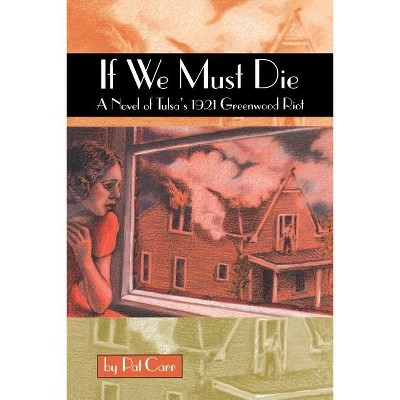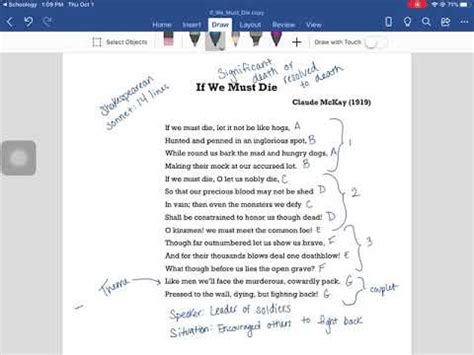If We Must Die

If we must die, let it not be like hogs, hunted and penned in an inglorious spot. These words, penned by Claude McKay in his powerful sonnet "If We Must Die," have resonated with generations of readers, evoking a sense of defiance and resistance in the face of oppression. The poem, written in 1919, was a response to the racial violence and lynching that was prevalent in the United States during the Red Summer, a period of intense racial tension and violence that swept the nation.
The Historical Context of “If We Must Die”

To understand the significance of McKay’s poem, it is essential to consider the historical context in which it was written. The Red Summer of 1919 was a time of great turmoil and upheaval, with racial tensions simmering just below the surface. The summer saw a wave of violent attacks on African American communities, with hundreds of people killed or injured. The violence was often perpetrated by white mobs, and the authorities frequently turned a blind eye or even participated in the attacks. It was against this backdrop of violence and oppression that McKay wrote “If We Must Die,” a poem that would become an anthem for the Harlem Renaissance and a powerful expression of resistance against racism.
The Poem’s Themes and Imagery
McKay’s poem is a masterful exploration of themes such as resistance, defiance, and the struggle for dignity in the face of oppression. The poem’s imagery is vivid and powerful, with McKay using metaphors and similes to convey the brutal reality of racial violence. The opening lines, “If we must die, let it not be like hogs, / Hunted and penned in an inglorious spot,” set the tone for the rest of the poem, emphasizing the need for dignity and resistance in the face of death. The image of the “hogs” is particularly significant, as it highlights the dehumanizing nature of racial violence and the need for African Americans to assert their humanity in the face of oppression.
| Year | Event | Description |
|---|---|---|
| 1919 | Red Summer | A wave of racial violence and lynching that swept the United States, resulting in the deaths of hundreds of African Americans. |
| 1920s | Harlem Renaissance | A cultural and literary movement that celebrated African American culture and identity, with McKay's poem "If We Must Die" becoming an anthem for the movement. |

Key Points
- Claude McKay's poem "If We Must Die" is a powerful expression of resistance against racism and oppression.
- The poem was written in response to the racial violence and lynching that was prevalent in the United States during the Red Summer of 1919.
- The poem's themes of resistance, defiance, and dignity in the face of oppression continue to resonate with readers today.
- McKay's use of imagery and metaphor adds depth and complexity to the poem, highlighting the brutal reality of racial violence.
- The poem's significance extends beyond its literary merit, capturing the mood and spirit of a generation and helping to galvanize the Harlem Renaissance.
The Legacy of “If We Must Die”

McKay’s poem has had a lasting impact on American literature and culture, influencing generations of writers and activists. The poem’s themes of resistance and defiance continue to resonate with readers today, and its powerful imagery and metaphor have made it a classic of American literature. As a testament to its enduring significance, “If We Must Die” has been widely anthologized and studied, and its influence can be seen in the work of writers such as Langston Hughes and Zora Neale Hurston.
The Poem’s Continued Relevance
Despite being written over a century ago, “If We Must Die” remains a powerful and relevant work, speaking to ongoing issues of racial justice and inequality. The poem’s themes of resistance and defiance continue to inspire and motivate readers, and its imagery and metaphor remain a powerful tool for exploring the complexities of human experience. As a work of literature, “If We Must Die” is a testament to the enduring power of poetry to capture the human condition and inspire positive change.
What is the historical context of “If We Must Die”?
+The poem was written in 1919, during the Red Summer, a period of intense racial tension and violence in the United States. The poem is a response to the racial violence and lynching that was prevalent at the time.
What are the main themes of “If We Must Die”?
+The poem’s main themes are resistance, defiance, and dignity in the face of oppression. The poem explores the need for African Americans to assert their humanity in the face of racial violence and oppression.
Why is “If We Must Die” considered an important work of American literature?
+The poem is considered an important work of American literature because of its powerful imagery and metaphor, its exploration of themes that continue to resonate with readers today, and its influence on generations of writers and activists.



